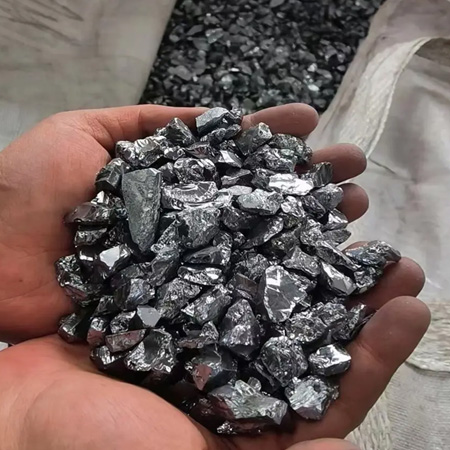Silicon metal is a high-purity alloy of silicon, its common models include Silicon Metal 553, Silicon Metal 441. In addition, it mainly contains aluminum, iron, calcium, manganese and other elements. Silicon metal is a solid material with high strength, high melting point and high chemical stability. The role of silicon metal in refractories plays significantly.

First of all, metal silicon can maintain the stability of materials at high temperatures and reduce the risk of physical or chemical changes in materials at high temperatures. This makes metallic silicon often used to manufacture refractory materials for high-temperature applications, such as high-temperature furnace linings, refractory plates, etc.
Secondly, the role of silicon metal in refractories is, the addition of metal silicon can significantly improve the impact resistance of the material. Refractory materials often need to withstand mechanical shock, vibration and other conditions, and metallic silicon is very important for improving the performance of furnace and kiln materials.
Moreover, silicon metal can improve the oxidation resistance of refractory materials. This is also the Role of Silicon Metal in RefractoriesAt high temperatures, refractory materials will go through oxidation and corrosion, which can lead to severe material wear. Adding metallic silicon can enhance the oxidation resistance of refractory materials and resist varying degrees of corrosion and erosion.
what’s more, silicon metal have more advantages in metallurgy industry. It is a very important additive in aluminum alloys. From the other hand, we can also supply the other important refactory materials, which is silicon carbide.
Therefore, The Role of Silicon Metal in Refractories is wider in the production of refractory materials used in various high-temperature environments. For example, aluminum electrolytic cell adhesive materials and steel smelting furnace linings. In order for convenience, silicon metal supplier such like Highrise Metal Material provides various grades and shapes to users. Shape/Sizes includes lumps, grains and powders. Standard grades above 98.5% silicon. In addition, silicon metal 97 is also a good cost-effective model.
